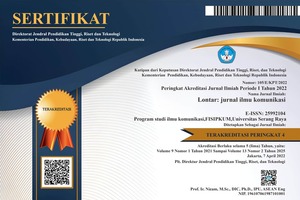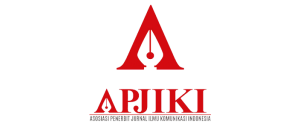Efektifitas Iklan Negatif Di Media Sosial Dalam Politik Di Indonesia
DOI:
https://doi.org/10.30656/lontar.v6i1.650Abstract
Political advertising has been part in series of political campaigns with all its dynamics. Interestingly, social media is quite effective attracting voters thus emerging the supporting community. This phenomenon is felt since 2014 Elections, when viewed furthermore, the shared content in socmed has same patterns packing political ads, which plays negative issue in society. How is the effectiveness of political ads through socmed in Indonesian politics? Why is a negative political ads tends to have more influence in society? According Perloff (2014), the feature of political ads is to direct its negativity, used for colorful roles in presidential campaigns and proving that it is easier for people to consider negative advertising than positive advertising.Qualitative descriptive analysis will reveal the phenomena with relevant theories to the effects of socmed illustrating its power to form partisan.Downloads
Published
Issue
Section
License
By submitting an article to the journal, the author(s) agree to transfer the published article's copyright to the journal, which will act as the publisher. This means the journal will have the right to publish the article in various forms, including reprints. The journal will maintain the publishing rights to the published articles.
In line with the license, authors and third parties (readers, researchers, and others) are allowed to share and adapt the material. In addition, the material must be given appropriate credit, provided with a link to the license, and indicated if changes were made. If authors remix, transform, or build upon the material, authors must distribute their contributions under the same license as the original.






